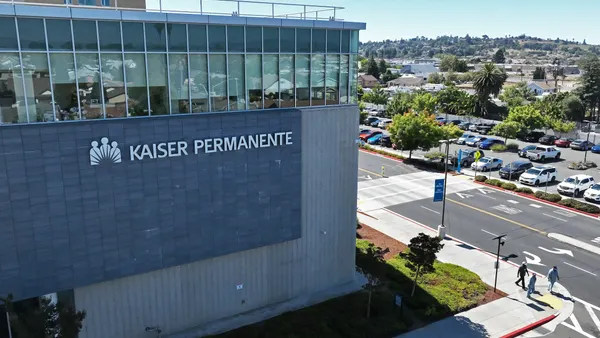Dive Brief:
- The last remaining independent non-profit hospital in Southeast Michigan will soon become a part of St. Louis-based Ascension Health when Crittenton Hospital Medical Center joins the largest and most solvent non-profit health system in the US, according to a company press release.
- After considering offers from nearly a half-dozen other interested parties, Crittenton surprised no one when they accepted Ascension's offer. The move creates a more secure future for Crittenton, while also giving Ascension a key asset in an area where the company was previously absent.
- The move will ensure that Crittenton, which has been struggling financially, will be able to keep its doors open and work on building patient volume.
Dive Insight:
Crittenton is emerging from a dramatic turnaround campaign over the last few years.
According to Crain's Detroit Business, Crittenton has been trying to increase revenue, reduce costs and improve quality after a few tough years in the red. In 2013, Crittenton Hospital lost $22.2 million on operations, an increase of 38% from $16.1 million in 2012, primarily attributed to reduced patient volume. Total revenue dropped 6.3% to $228 million in 2013, primarily due to lower surgical volume and debt write-offs, he said. Assets increased 8% to $438.1 million in 2013 from $406.6 million in 2012. After years of work, however, Crittenton will post a slight profit for 2014.
That being said, there may be consequences for patients and doctors as the two come together. Ascension is a faith-based non-profit healthcare organization, as are many non-profits in the industry. Crittenton is not faith-based, and that may come into play as the staff at Crittenton are introduced to a different culture.
"Powell said there will be 'limited impact' to certain Crittenton services that may conflict with Catholic canons," Jay Greene wrote in Crain's. "He did not specify which services. But Crittenton performs tubal ligations (permanent birth control surgery), according to information on its website." (Tubal ligations are forbidden forbidden under Catholic doctrine.)
The press release goes more than a bit overboard in talking about the close partnership and rapport Crittenton's staff has with Ascension through past dealings. Whenever an 11-paragraph press release has four paragraphs about how everyone is looking forward to working together, that smells of overcompensation.
On paper, this is a good deal for both parties. But the reality of the transition, for caregivers and patients alike, may not be as smooth as the executives are characterizing it.













